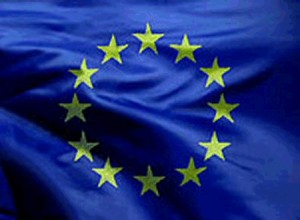7 European countries form a joint front against Jihadism
Thursday, June 5th, 2014 6:45:35 by Jamshed Sindhu
Syria is a source of radicalization for thousands of Europeans who are involved in the conflict. The shooting at the Jewish Museum in Brussels, allegedly committed by a French jihadi who had fought in the Syrian war, has alarmed Europe, struggling to contain this phenomenon for two years. Interior ministers from seven EU countries, including Spain, meet in Luxembourg on Wednesday to improve the exchange of information and response to toughen criminal approach to these radical cells.
The interior ministers of the Union and had planned to discuss the problem of so-called foreign fighters of European nationality, young sympathetic to the radical Syrian opposition who leave and return to fight ready to attack in their countries. But the attack in Brussels, which killed three people and a fourth was in critical condition, has raised the alert level. Before the general meeting, holders of more disturbed by this phenomenon, France, Belgium, Spain, Germany, UK, Holland and Denmark, countries maintain a breakfast meeting to a crackdown on these profiles, according to diplomatic sources explained.
The foreign fighters are the main concern of counter-terrorism in Europe. As proof of this, the meeting was also attended by the European coordinator for that matter, Gilles de Kerchove, which will report on the extent of the problem. The main objective is to share information unhindered from which Member States to detect citizens who, if not intercepted around Syria, can circulate within the Schengen area. It is estimated that there are over 2,000 European soldiers who have traveled to Syria.
Ministers also pose a hardening of the European definition of terrorism, to include jihadist training, not only for those who taught, as before, but for the recipient. Interior holders will share the practices of each to try to extend them.
One of the tools that states want to implement is the hitherto ill-fated European register of passengers, lay the Parliament last year by exceeding the limits of privacy. The project, presented by the European Commission in 2011, intended to compel airlines to provide the authorities with full details of any passenger traveling from the EU to a third country or vice versa. With the European system, all countries could access that information. Paradoxically, Europe and communicates this data to the U.S., because its legislation so provides, but does not share at Community level. However, countries do have the Schengen Information System, a database of common data fueling all Member States. These records may include biometric data of passengers and vehicles and is used at border posts and police. The ministers try to get more out.
Short URL: https://www.newspakistan.pk/?p=44891

















